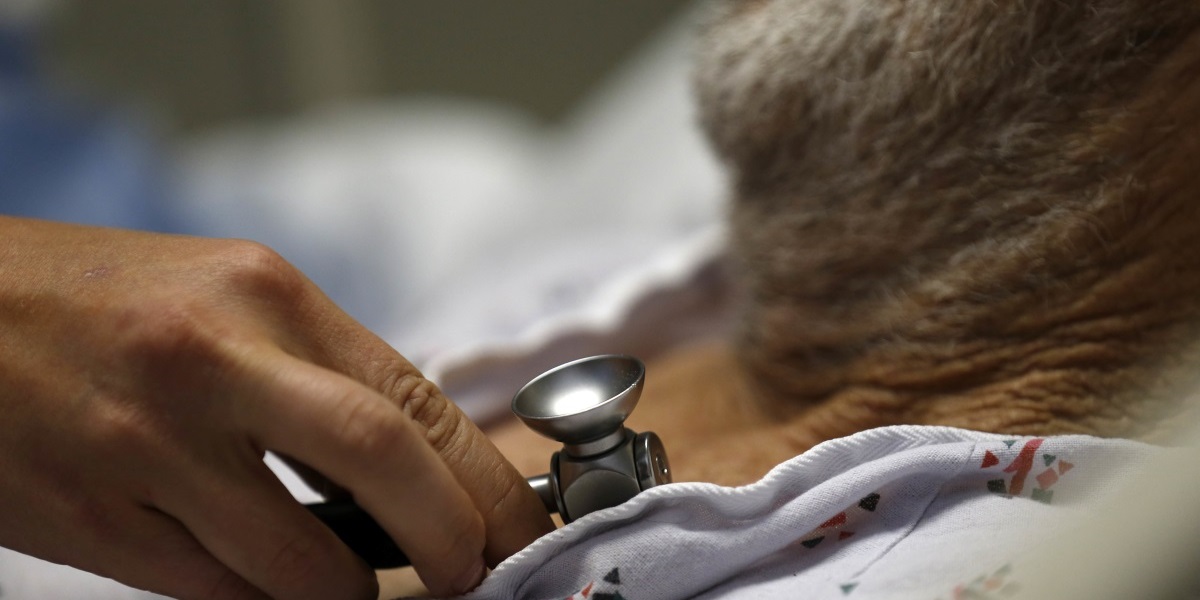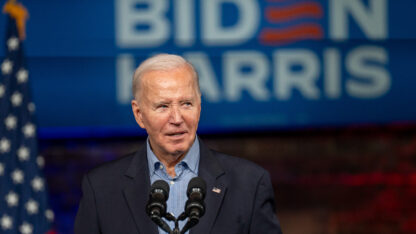Ga. Chamber Releases Plans For Expanding Health Care Access

A health care task force created by the Georgia Chamber of Commerce released its much-anticipated report on ways the state could expand medical coverage to the uninsured Wednesday, outlining three “game ready” paths for lawmakers to consider this coming legislative session.
None of the three plans suggest adopting conventional Medicaid expansion as called for under the Affordable Care Act, or Obamacare. States that have taken this route simply expanded eligibility for Medicaid, the federal health program for the poor and disabled, to all individuals whose income falls at or below 138 percent of the federal poverty line, or about $16,000.
Rather, all three proposals outlined by the Georgia Chamber’s task force call on lawmakers to seek a 1115 Waiver, which other Republican-majority states have used to cover the same low-income population, but on their own terms.
The Chamber report says the “Georgia Way should present the most conservative, most sustainable pathway under U.S. law to close the coverage gap and to save or improve our healthcare provider network.”
“Any of these plans would serve as a game-ready playbook for lawmakers seeking a fiscally responsible and sustainable path to cover Georgia’s uninsured, revitalize a rural healthcare network in crisis and undergird our safety net hospitals,” said Chamber CEO Chris Clark in a statement.
Three Different Plans
Of the three plans, one in particular will likely raise eyebrows at the federal level. The first plan would provide new coverage through the state Medicaid program to those at or below only 100 percent of the federal poverty level, or about $11,770 for an individual. The Centers for Medicare and Medicaid Services, which would have to approve the plan, has never signed off on a “partial expansion” that extends coverage to less than 138 percent FPL.
Still, Chamber officials are hopeful that, should the legislature adopt this plan in the coming session, a new administration under Donald Trump or Hillary Clinton would be willing to negotiate that point.
“We’re optimistic we’ll receive greater flexibility to suit our state’s unique needs and preferences,” said Clark. “This particular path covers a significant number of Georgians in great need while limiting the state cost.”
The remaining two plans would cover individuals up to 138 FPL, but in different ways. The first would enroll all beneficiaries into Medicaid, while the final proposal would place those who fall between 100 percent to 138 percent of poverty on a private insurance plan via the online exchange, but paid for by Medicaid.
All of the plans would require cost-sharing measures, like premiums and co-pays, and all include the statewide expansion of a pilot program for food stamps. The program, now in a few dozen counties, allows able-bodied adults without children access to food stamps for only three months in a three-year period unless they find a job or work-training program.
Lawmaker Opposition
So far, 31 states and the District of Columbia have expanded Medicaid coverage.
At about 16 percent, Georgia has one of the highest uninsured rates in the nation. The Chamber report estimates about 1 in 4 Georgians currently live below 138 percent of poverty. It says about 29 percent of those individuals are uninsured.
Whether state lawmakers will loosen their long-standing opposition to expanding Medicaid, though, is yet to be seen. Gov. Nathan Deal has insisted the state can’t afford the cost. Lawmakers also passed a law in 2014 requiring legislative approval of an expansion plan.
Still, there have been signs that stance may be softening. Republican State Sen. Renee Unterman, who chairs the health and human services committee, recently voiced support for looking at an expansion plan for the state.
Task force officials say they’ll hold additional conversations with lawmakers about the three expansion plans, and release additional projections and data before the end of the year.
9(MDAxODM0MDY4MDEyMTY4NDA3MzI3YjkzMw004))








